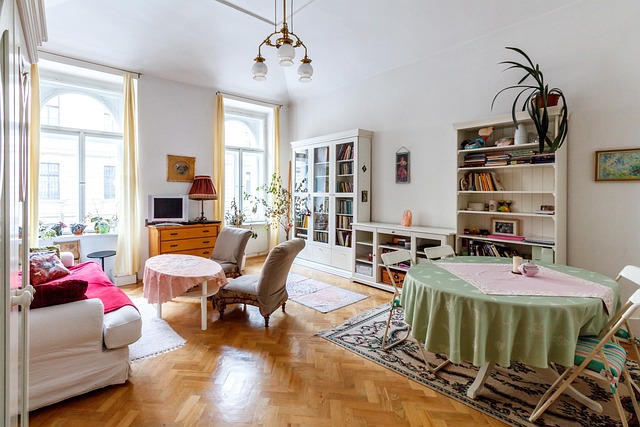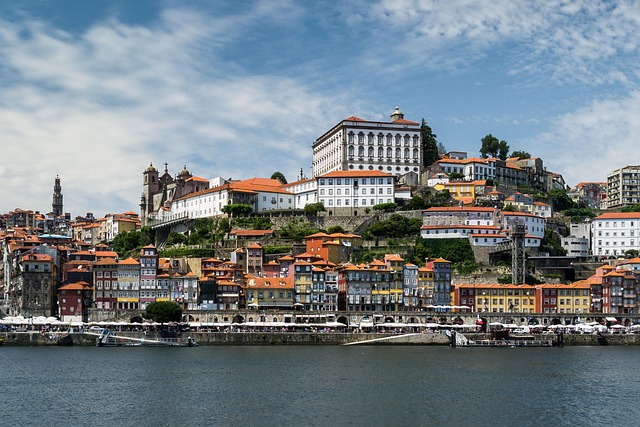
Feeling overwhelmed by endless online searches and confusing tips while buying property in Portugal? 🇵🇹 Here's the good news: this guide offers a straightforward, step-by-step roadmap tailored for foreigners navigating the Portuguese real estate market. We'll walk you through smart investment strategies, clarify property taxes and fees, and highlight common pitfalls—helping you secure that perfect property purchase without unwanted surprises. 🏡 Imagine settling into your dream home in Portugal sooner than you think. Pro tip: it's easier when you know where to start!
Thinking about buying a house in Portugal? First thing's first - non-EU buyers must obtain a Portuguese Fiscal Number (NIF). This applies whether you're eyeing apartments in Lisbon or villas in the Algarve. You'll need your passport and (for non-residents) a local tax representative. Without this number, you can't proceed with mortgage applications or property transactions. 🔑
Good news though - Portugal welcomes foreign buyers! EU citizens enjoy simpler paperwork, while others may require extra documents to prove ownership rights. Either way, working with a local agent helps navigate tax rules and registration processes smoothly. Pro tip: Start your document preparation early to avoid delays! 📜
Ready to buy property in Portugal? Here's what you'll need:
• Fiscal number (NIF)
• Property registration certificates
• Tax representative contract (for non-EU buyers)
The notary verification process varies depending on the property's history. Simple title searches can take just a few weeks, while more complex cases—such as unclear ownership records or inheritance disputes—may extend the process beyond two months. Foreign-translated documents require official authentication as well. Having these ready upfront? That's half the battle won when buying a home here. 🏃♀️
Portugal's Golden Visa program underwent significant changes in 2024. If you're aiming for residency, direct real estate investment is no longer an option in major coastal areas like Lisbon, Porto, and the Algarve. Instead, consider these investment routes:
| Category | Eligible Areas (Post-2024 Changes) | Investment Threshold |
|---|---|---|
| Investment Funds | Portugal (Specific fund allocation rules apply) | €500,000 (minimum, into qualifying investment or venture capital funds) |
| Cultural/Artistic Projects | Low-density areas (less than 100 inhabitants per km² or GDP per capita below 75% of national average) | Potentially lower thresholds (e.g., €250,000, specific to the project) |
| Real Estate (Pre-Oct 2023) | Low-density areas | €400,000 |
| Restricted Areas | Lisbon, Porto, Algarve (Direct real estate investment no longer qualifies) | N/A |
Key Takeaway: Lisbon, Porto, and the Algarve are now excluded from the Golden Visa real estate pathway. However, these regions remain attractive for those buying for personal use or investment purposes rather than visa eligibility. If your goal is residency, opportunities now lie inland, where prices tend to be more affordable. 🧐

The 2024 changes significantly reshaped Portugal's real estate market. While buying a vacation home in the Algarve remains a popular choice, those seeking residency now focus on low-density inland areas. Local banks report increased mortgage inquiries for properties in central Portugal and the northern regions.
Important update: Rental properties alone no longer qualify for a Golden Visa—investors must meet specific investment criteria. If you were considering a property in Porto solely for residency purposes, it's time to reassess your strategy. 🏡"*
Let's unpack the main tax factors you'll encounter when budgeting for Portuguese property taxes - knowledge that could save you thousands. 🧮
Mastering these tax rules is half the battle when buying Portuguese real estate. Now let's put numbers to paper...
Imagine comparing €300k properties across different Portuguese regions. In Lisbon's competitive market, IMT and Stamp Duty could eat into 6% to 7% of your budget. Head south to the Algarve or north to Porto, and you might find better prices with lower tax bites. Rural Alentejo? Lower house costs mean smaller taxes, but consider accessibility. Coastal areas like the Algarve blend tourist appeal with specific tax implications. Location isn't just about views - it's euros and cents. 🏡
Good news for foreigners: mortgage solutions for international buyers. You'll typically need a 30% deposit and solid credit history. But here's the catch - rates vary wildly between institutions. 🏦
Fixed versus variable mortgage rates. Fixed-rate mortgages lock in predictability - perfect if you're budgeting long-term. Variable options dance with the Euribor index, which saw dramatic swings in 2022. Currently, many experts suggest fixed rates for foreign buyers seeking stability. Remember, your bank choice affects not just rates but also life insurance requirements and early repayment terms.
Beyond the obvious taxes, smart buyers keep an eye on hidden property charges. Urban rehabilitation fees (usually up to 0.5% in designated renewal zones) and waste management levies can catch newcomers off guard. In tourist hotspots like the Algarve, condominium fees often increase seasonally due to higher maintenance costs for pools, security, and shared facilities. 💸
Here's what locals know: investigating property fee history. Always ask for three years of condominium minutes. This reveals upcoming renovations that could spike your fees. In historic areas like Lisbon's Alfama, heritage restrictions might limit renovation options. Coastal properties bring higher insurance costs too. Factor in €1,500 to €4,000 annually for property extras depending on property size and location. 🔍
Portugal's Algarve region showcases a premium property market. This coastal hotspot remains a top choice for foreigners seeking luxury homes, while inland areas attract buyers watching their budgets. 🏘️
Let's not overlook the Douro Valley's evolution. Known for its terraced vineyards and UNESCO status, this Portuguese gem is seeing improved road access that could boost its appeal. While it's always been popular for vacation homes, better infrastructure might make apartments here smarter long-term purchases. Could this become Portugal's next rising star? 🏞️
Lisbon's commercial districts have adjusted prices post-pandemic, offering new opportunities for those ready to buy. The city maintains its status as Portugal's prime real estate hub. 🏙️
Meanwhile, Porto's tech boom is reshaping its housing market. As more companies set up shop, demand for modern apartments near the city center surges. This trend particularly interests foreign buyers needing bank financing - prices here climb steadily, making early purchases advisable. Pro tip: check properties near universities for strong rental potential. 🏢
When buying property in Portugal, a thorough ownership verification process is essential. Ensuring that a property's legal status is clear before purchase can prevent serious complications later. 🏡
Take unresolved land parcel issues, for example. Some properties, particularly in rural areas, may have unregistered expansions or unclear boundaries, requiring a deep dive into historical land registries (Conservatória do Registo Predial). I've seen cases in the Algarve where careful document checks saved foreign buyers from costly disputes.

Pro tip: Always request a full set of updated ownership records, including the Caderneta Predial (property tax document) and Certidão Permanente (land registry certificate), before committing to a sale. 📑
Here's what surprises many foreigners: rural properties are subject to strict zoning and planning regulations. When considering real estate outside city centers, it's crucial to verify building permits, land use classifications, and compliance with municipal development plans (Plano Diretor Municipal - PDM). Overlooking this step could lead to unexpected fines or legal disputes later. 🚧
Let's talk Algarve specifics. Certain municipalities, such as Aljezur and parts of the Costa Vicentina Natural Park, enforce rigid conservation and setback rules. I recently worked with a buyer whose dream house nearly fell through because the previous owner had built an extension without the proper legal approvals.
Lesson? Always check a property's compliance with local municipal authorities (Câmara Municipal) before signing anything—especially in protected or ecologically sensitive areas. 🇵🇹
Pro tip: Partner with a Portuguese-licensed agent. They'll help navigate mortgage options while ensuring all documents meet legal standards. 💼
When looking to buy properties in Portugal, choosing the right legal expert makes all the difference. Opt for advogados registered with Ordem dos Solicitadores - this ensures they follow strict professional standards. Pro tip: many reliable lawyers in the Algarve and Porto areas specialize in helping foreign buyers with taxes and mortgage processes. ⚖️
Let's talk numbers. Legal fees for home purchases typically cover contract reviews, title checks, and transaction support. While costs vary between cities, budgeting helps avoid surprises. Remember: some banks require specific documents for mortgage approval, so factor this into your timeline. 💡
Here’s how to identify trustworthy real estate partners: verify IMPIC certification, check client reviews across multiple platforms, and ensure the agency has experience with foreign buyers. This is especially crucial in high-demand areas like the Algarve and Lisbon, where market conditions can be complex.
Did you know? Many foreign buyers prefer boutique agencies for their deeper local market expertise. While multinational brokers provide wider property selections, smaller agencies often offer tailored insights on pricing, zoning laws, and renovation restrictions.
Commission structures vary, so comparing service packages is essential. In Lisbon’s historic districts, for example, specialized agents can guide buyers through renovation permits and heritage property regulations—an important factor for those considering property upgrades. 🔍
Let’s compare Alojamento Local (AL) short-term rentals vs. long-term leases in key tourist destinations. Understanding rental yields is essential when evaluating potential returns on Portuguese real estate investments. 📈
Now, here’s a key factor: recent regulatory changes are reshaping the short-term rental market. AL licenses are now subject to tighter local restrictions, particularly in high-demand areas like Lisbon, Porto, and parts of the Algarve, where municipalities are limiting or freezing new registrations. However, interior and rural regions remain more flexible, making them attractive for investors seeking fewer regulatory hurdles.

Pro tip: Before purchasing for rental income, always check the latest AL licensing rules in your target location. Additionally, staying informed on property tax implications and bank mortgage conditions is crucial for long-term profitability. 💡
When evaluating houses for sale, always factor in transaction taxes and notary fees. A good real estate agent can help navigate these steps while monitoring price trends across different Portuguese regions.
When purchasing property in Portugal, adopting a structured evaluation method helps balance personal needs with financial goals. Consider factors such as location desirability, long-term appreciation potential, local market demand, and tax implications. This approach ensures your purchase aligns with both lifestyle preferences and investment strategy. 🏡
For market analysis, modern tools now provide detailed insights into micro-market trends, price per square meter, and demand fluctuations. By leveraging these data points, buyers can identify high-growth areas and make informed property decisions. Online platforms allow for direct price comparisons, making it easier to assess value when considering apartments, villas, or renovation projects. 💻📈
Entering Portugal's real estate market calls for thoughtful preparation—from grasping legal specifics to exploring regional opportunities. With the insights from this guide, you'll be better equipped to make confident choices. So why wait? Your dream of owning Portuguese property could start becoming reality today, paving the way for a more stable tomorrow! 🇵🇹
One major pitfall is the requirement to appoint a fiscal representative if you lack an address in Portugal, the EU, or the EEA. It's crucial to select a trustworthy individual residing in Portugal.
Ensure that you obtain a non-resident NIF and verify the credibility of online companies offering this service to avoid scams. The NIF is essential for numerous procedures in Portugal.
Portuguese banks typically require a personal deposit of 20% to 30% and closely examine credit history. Age can also be a limiting factor, influencing the maximum loan term.
They assess the buyer's repayment capacity by analysing income, expenses, and financial stability. Specific documents may be requested from non-residents to verify their financial situation.
Seasonal maintenance costs in the Algarve vary by property type, with garden maintenance being a significant expense, ranging from €20 to over €75 per hour, depending on the services. Annual maintenance contracts can ensure a well-kept garden year-round.
For villas, costs often include pool and garden upkeep, with fees varying based on visit frequency and included services. It's advisable to budget for general maintenance, including taxes, insurance, and legal fees.
Foreign buyers can ensure review validity by cross-referencing reviews on multiple platforms like Google Reviews and Trustpilot to identify consistent feedback patterns. They should also check if the platform has a verification process to ensure reviews are from actual customers.
Looking for detailed reviews that provide specific information and analysing the language and tone can help distinguish genuine reviews from fake ones. Seeking recommendations from trusted sources and checking agency credentials with relevant regulatory bodies are also crucial steps.
When purchasing in sensitive areas, it's crucial to comply with environmental regulations to minimise impacts on local wildlife and vegetation. Reviewing environmental impact studies and building permits is essential, especially near protected zones.
Utilising sustainable construction practices and obtaining an energy certificate can reduce environmental footprints and potentially increase property value. Restrictions on construction or unresolved environmental issues can decrease long-term property value.
Home insurance for condominiums is mandatory by law, covering fire damage. While not always mandatory, home insurance is highly recommended for homeowners. Civil liability insurance is also advisable, covering injuries or damages caused to others.
Insurance costs vary based on location and property type. Coastal areas might have higher premiums due to increased risk of storms, and larger properties with features like swimming pools may incur higher costs. The reconstruction value of the property is also a factor.
Here you’ll find all the latest news and advice on real estate in Portugal. Whether you’re a buyer, investor or expat, our blog articles will guide you through the key stages: the property market, taxation, financing, Golden Visa, legal procedures and much more!
Keep up to date with market trends, new regulations and investment opportunities. With ImmoGuide, buy and invest with confidence!
 " />
" />
 " />
" />
 " />
" />
 " />
" />
 " />
" />
 " />
" />

I am Victor, an independent real estate agent in Portugal, specializing in assisting foreign buyers and investors. With in-depth market knowledge and a personalized approach, I guide you through articles and news about the Portuguese real estate market.





I am Victor, an independent real estate agent in Portugal, specializing in assisting foreign buyers and investors. With in-depth market knowledge and a personalized approach, I guide you through articles and news about the Portuguese real estate market.